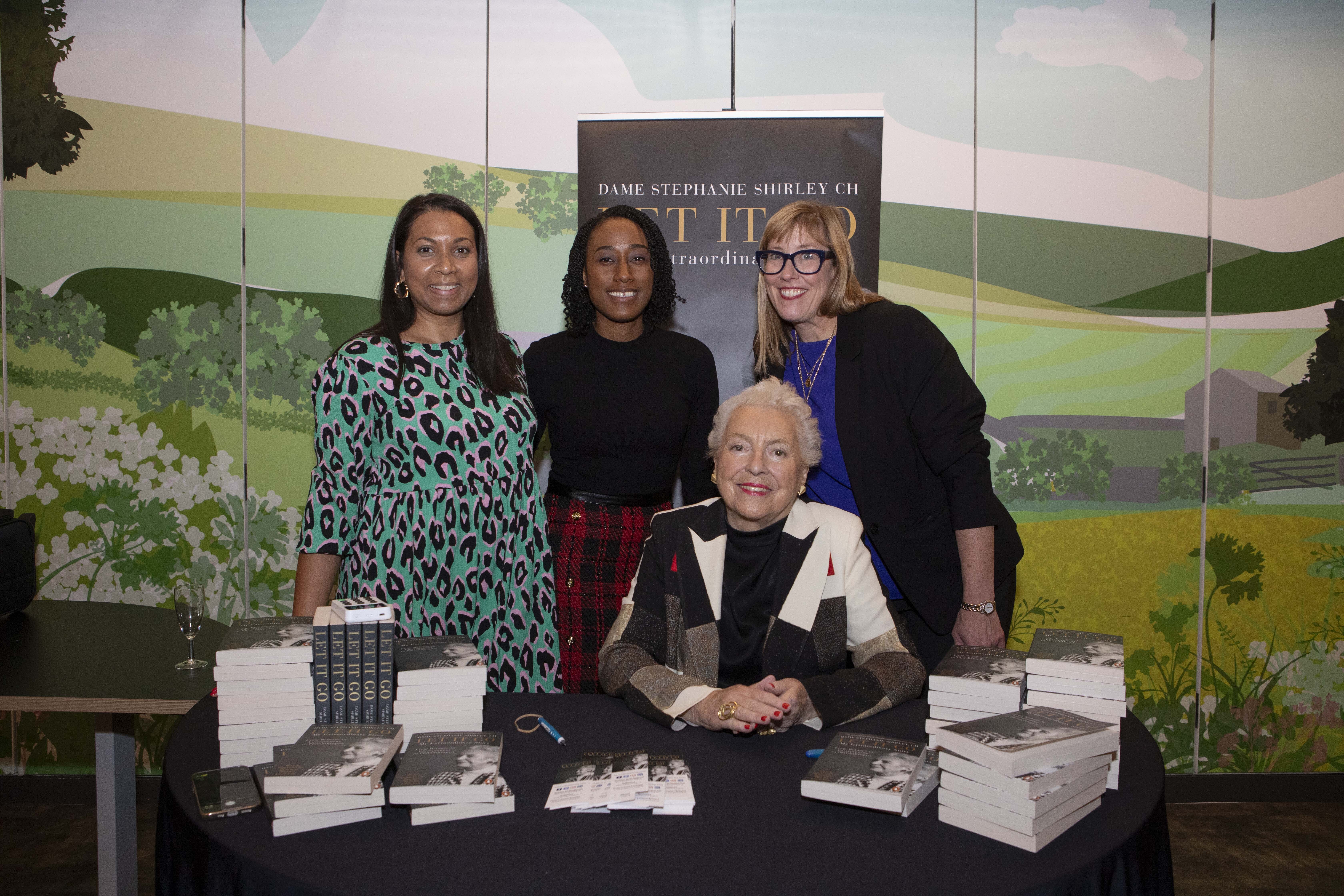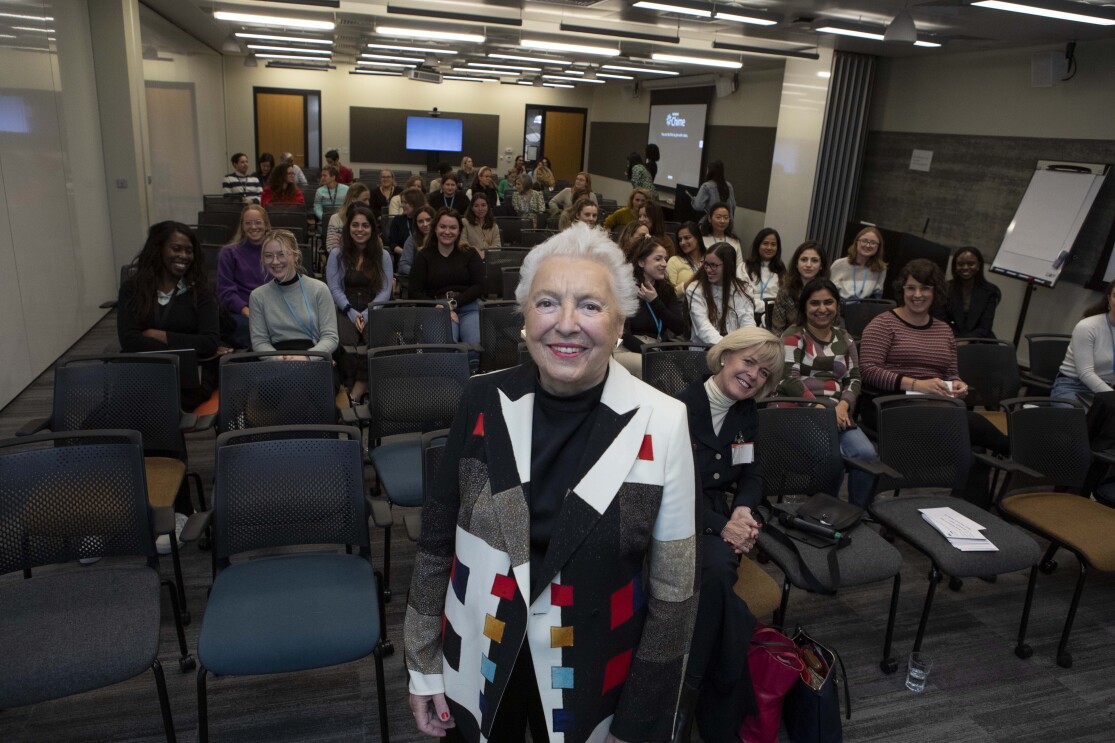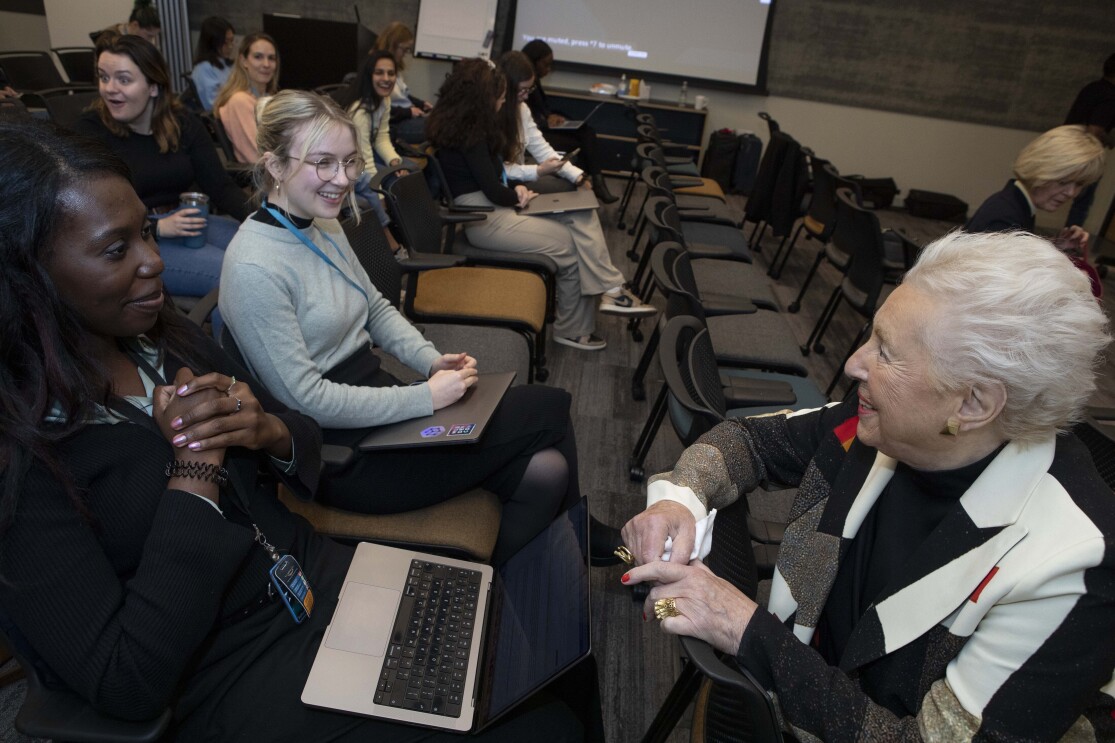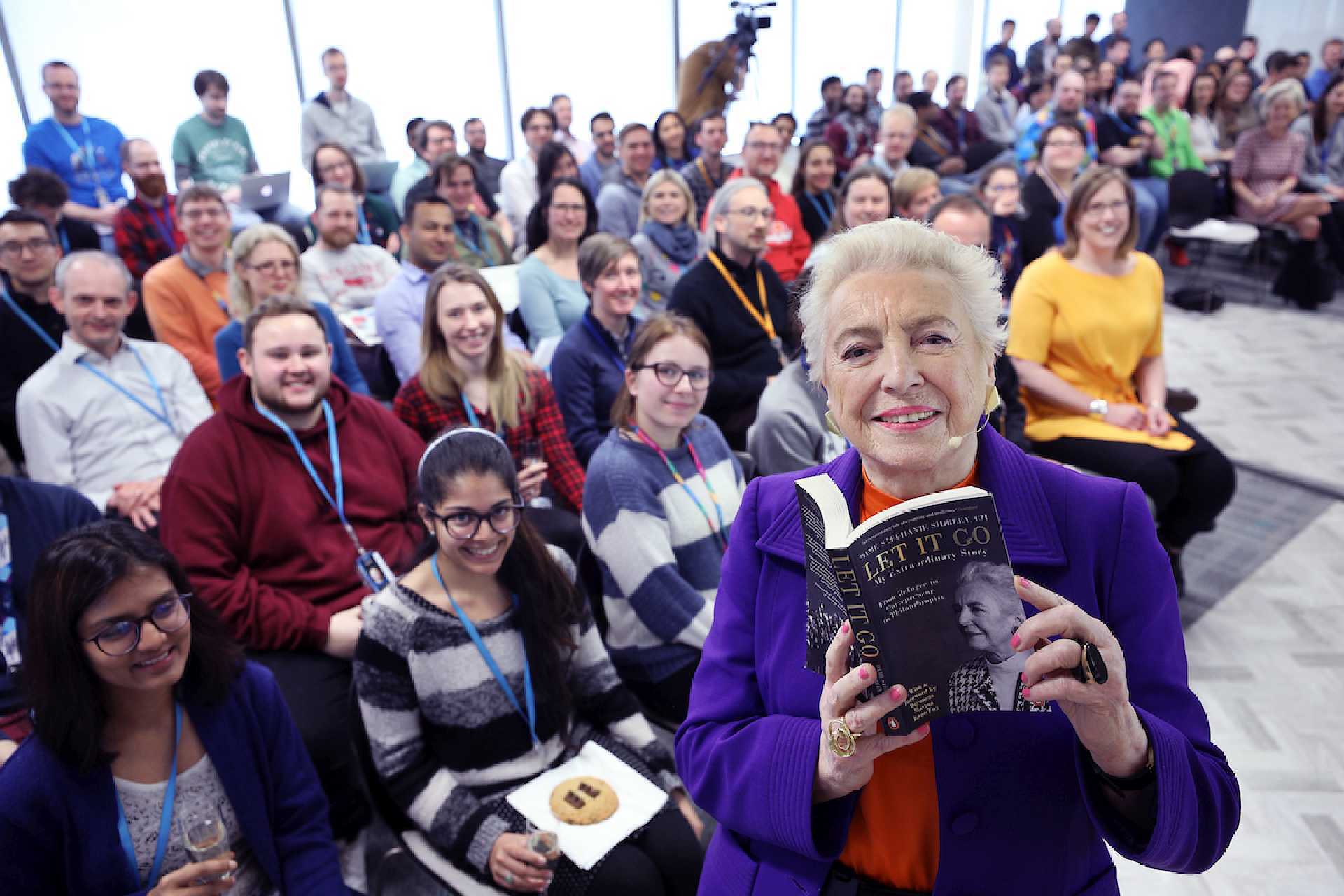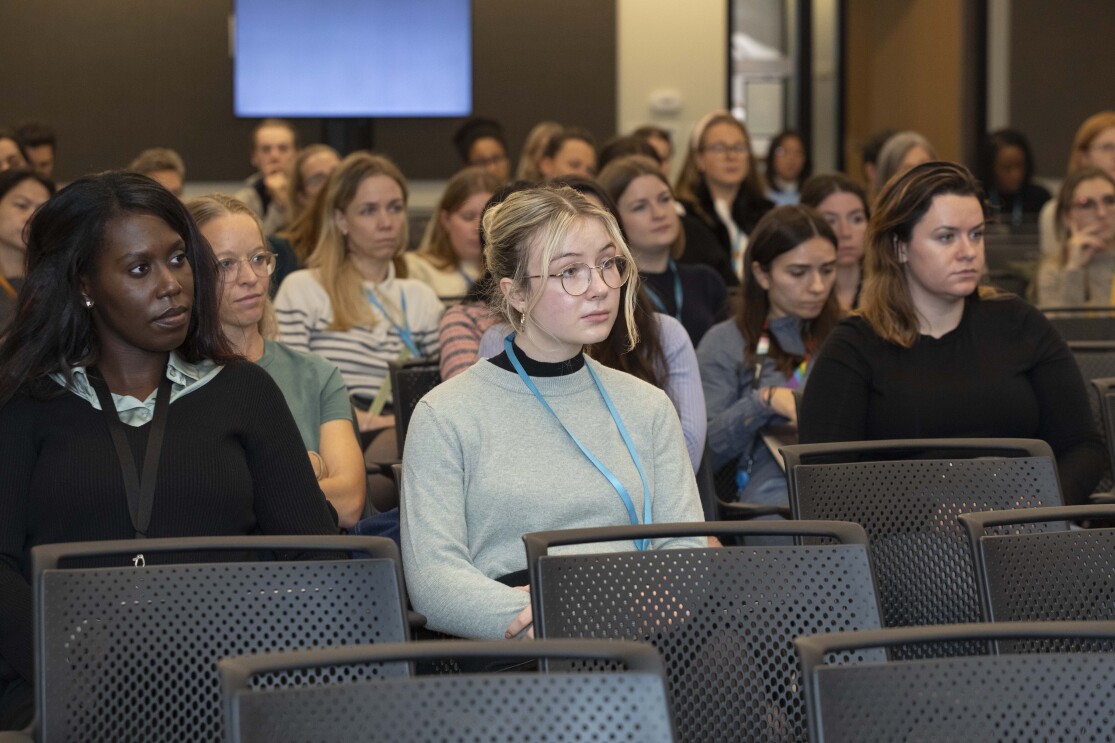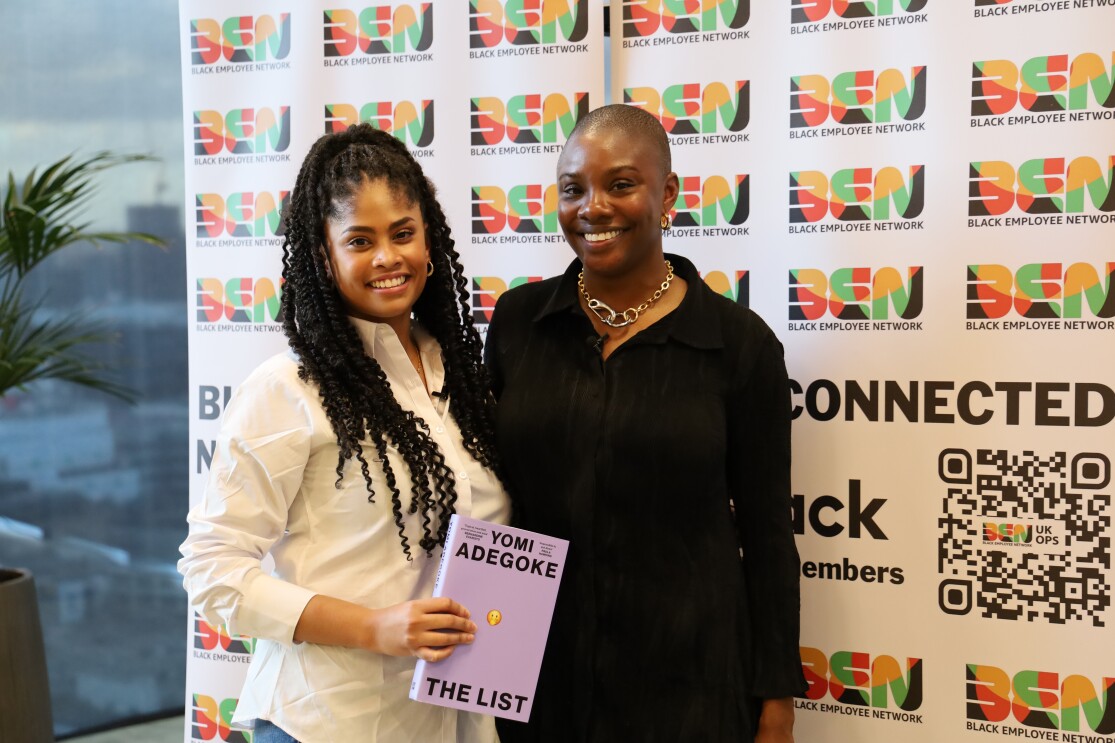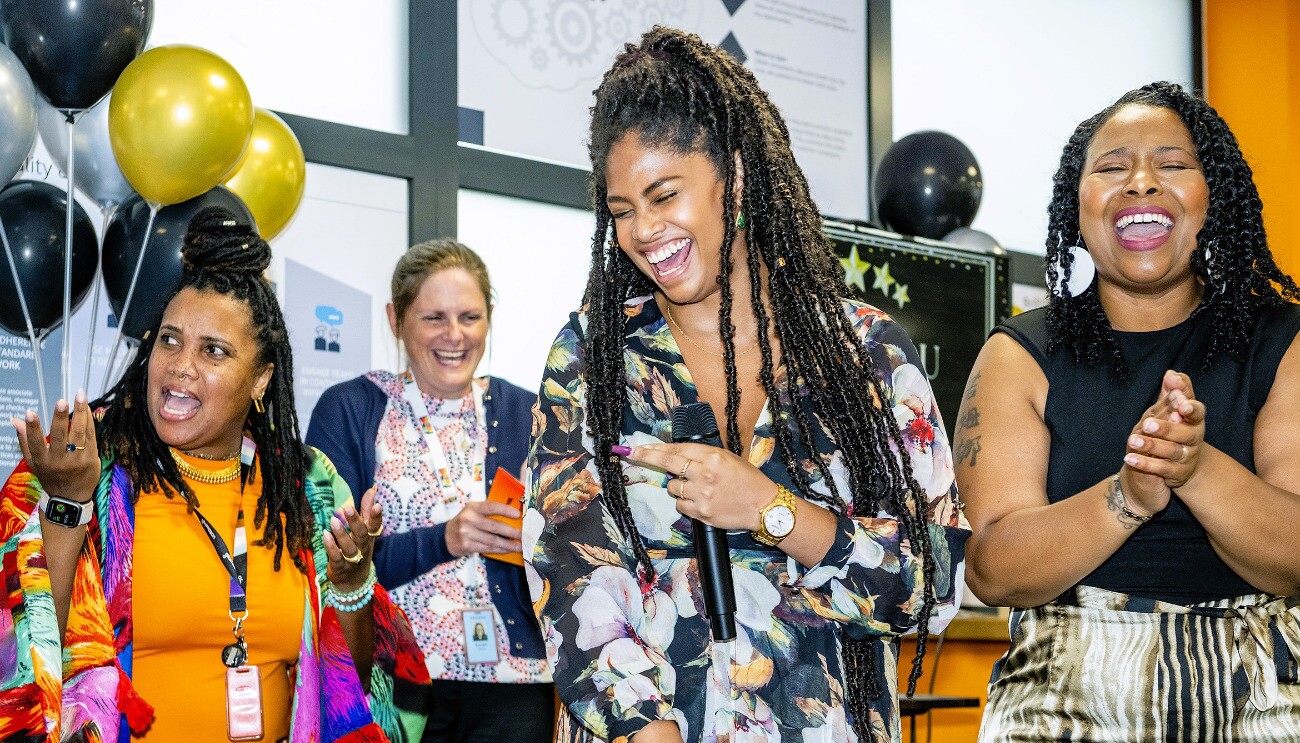Building a career as an ambitious woman in the 1950s wasn’t easy. And for women in tech, it was even harder.
Just ask Dame Steve Shirley, a British businesswoman, technology pioneer, and philanthropist who was one of the earliest computer programmers — and the founder of a trailblazing software company made up almost entirely of women.
Speaking to an audience of Amazon employees at an event hosted by Prime Video Women in Tech London and Women at Amazon UK, Dame Steve shared some of her unique insights with today’s women in tech.
Read on for her three top lessons in leadership for the trailblazers of today.
The importance of resilience and patience
Born to a Jewish father in Dortmund, Dame Steve arrived in Britain in 1939, aged five, as one of the hundreds of child refugees rescued by the Kindertransport.
Quickly adapting to her new life in the Midlands, she grew up to develop a resilience that would become one of her greatest strengths as a businesswoman: “I learned to be self-reliant and made the best of what life offered me as a young woman in the mid-1950s.”
During her first job at the Post Office Research Station in North West London, building computers from scratch and writing early versions of code, Dame Steve had an uncomfortable realisation.
“There was always a feeling of discontent in that job,” she explained. “It was quite simply because the men got paid more. After I hit the glass ceiling there, I took matters into my own hands.”
01 / 02
In 1962, she founded the software company Freelance Programmers, recruiting women who had previously left the industry after getting married or becoming pregnant.
“In those days, the idea of an all-female company was enough to terrify most of the men with whom I did business,” she said. “I soon discovered that if I signed off letters as Steve Shirley instead of Stephanie, I would get a reply — I had to pretend to be a man.”
Starting the business from her dining room table with the equivalent of £150, Dame Steve grew the company to a valuation of nearly $3bn.
But Dame Steve says there is no fast track to prosperity: “People talk about my overnight success, but it was 25 years before we received a dividend.”
“I have learned that progress generally comes from making a series of small steps rather than a giant leap. I've also learned that it's fine to make mistakes — the trick is to make them only once and learn from them.”
Know what type of leader you want to be
As her business grew, Dame Steve found day-to-day management challenging, so she was excited when an early customer bid to take over Freelance Programmers.
“There always seemed to be an excess of work and a shortage of funds,” she said. “I had a disagreeable collection of administrative tasks which were starting to overwhelm me. I thought these new investors could relieve me of some of these tedious problems, and I was delighted at the prospect of getting some capital into the business.”
But when these investors asked her to do something she considered unethical, she realised she wasn’t ready to give up that aspect of her control.
“I cancelled the plans, which left me with severe difficulties,” she said. “We’d already taken on new staff with the expectation that the takeover would go through, but I knew I’d done the right thing.”
For Dame Steve, this was a defining moment in her journey as a leader, setting the precedent for how she would conduct business for the rest of her career: “Success means nothing if it’s bought at the expense of ethical behaviour — only you can decide the sort of person you will become.”
Nobody in business does anything by themselves
Another pivotal learning moment was knowing when to let others take charge.
“The industry is littered with horror stories of founders who hung on too long,” she explained. “I knew I had been a superb technician and an excellent director, but only a competent manager."
By the late 1970s, Dame Steve realised it was time to step down as CEO.
01 / 02
“Nobody in business does anything by themselves — it's all a matter of teamwork. And one should always work for the good of the team.
“Listen to others with goodwill. Cherish the differences between you and your colleagues. Those are the things that make teamwork effective and creative.”
“People in business talk a lot about the need to attract smart people, but smart people only take you so far,” she said. “Leadership requires guidance and vision as well.”
The event was hosted by Lauren Kisser, Director Living Room Tech for Prime Video. “I was honoured to welcome Dame Stephanie as part of our diversity learning series. The lessons she shared of having resilience and patience; knowing what type of leader you want to be; and the value of team work really resonated with me. I loved seeing the reaction and the inspiration she gave to Amazon colleagues in the room, especially those early in their career.”
How Amazon supports future pioneers
Amazon invests in programmes that support future women leaders in tech, with programmes like Amazon Future Engineer, which provides young people with access to STEM resources and insights.
The Amazon Future Engineer bursary scheme also awards grants of up to £20,000 to young women from underserved backgrounds to study computer science degrees at university, while the Amazon Future Engineer Class Chats programme sees Amazon volunteers engage with young people virtually in the classroom to share their insights and experiences of working in tech.
